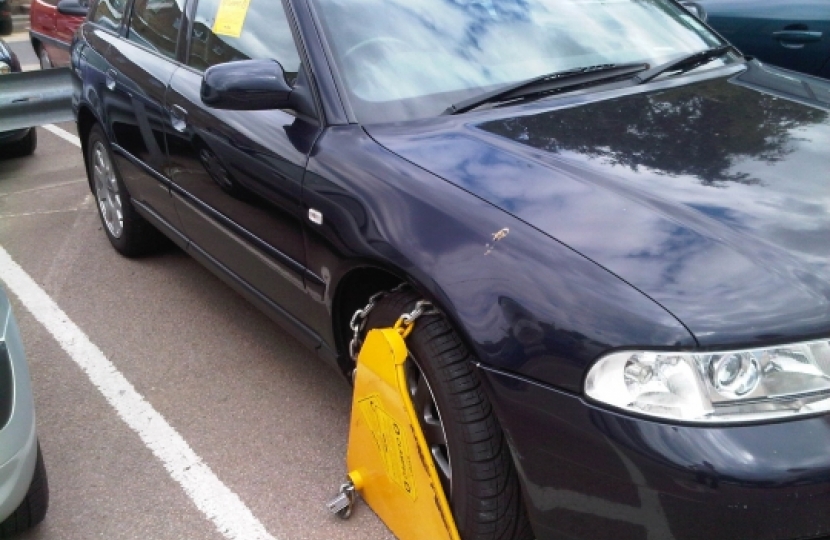
One of Rebecca's first campaigns as a Member of Parliament was to bring about a change in the law in relation to the legislation governing private clamping companies.
2023
The Government ran a Call For Evidence as part of plans to better regulate the private parking sector, including options for private parking charges issued for a perceived breach of a car park’s rules and debt recovery fees.
The Call For Evidence examined the effects that could be expected from the Code of Practice and 5 options relating to parking charges and debt recovery fees to help the decision-making process. Once introduced, the Code will allow drivers to challenge an unfair parking charge more easily through a new independent appeals service. All private parking operators will also have to follow the code.
It is expected to include:
- The production of a new certification scheme, based on the new code of practice and independently assessed by the United Kingdom Accreditation Service (UKAS). This will outline how in practice the requirements of the code should be measured, tested and assessed.
- Strengthened current system of self-regulation through which trade associations are required to undergo accreditation by UKAS as Conformity Assessment Bodies.
- The creation of a single appeals service, independent from the parking industry, to handle second-stage appeals against private parking charges.
- The establishment of a Scrutiny and Oversight Board to oversee the operation of the new system, monitor its effectiveness and recommend changes as necessary when the code is reviewed every 2 years.
2019
Rebecca supported the Parking (Code of Practice) Act as it progressed through Parliament, which sets out a requirement for the Government to introduce a statutory Parking Code of Practice which will ensure greater regulation of the private parking industry.
2012
Rebecca was particularly concerned about the number of instances where individuals managed to win a county court judgment against such companies, but were never paid back. In 2010 there were 19 people with County Court judgments against one such company, who owed £14,000 in compensation, who were still waiting to receive their award.
Speaking at the time, Rebecca said: "I want to introduce a very strict code of conduct on the clampers and if they fail to abide, we will take away their licence and they will go out of business."
Rebecca was keen to put an end to what in her view was a process of "legalised mugging". After sustained pressure from Rebecca, the Protection of Freedoms Act of 2012 received Royal Assent and clamping was made illegal on private land. The Act also scaled back the ability of rogue clampers and companies to clamp car owners.
Several South Essex MPs issued a joint statement saying: "This Bill is good news for people across Essex, as it will mean car clamping on private land will be made illegal. Too many of our constituents have been exploited by car clamping companies who were interpreting the old law far beyond what was originally intended and this new Bill will help stop that practice in the future, which is why we are all collectively very happy to support it."
